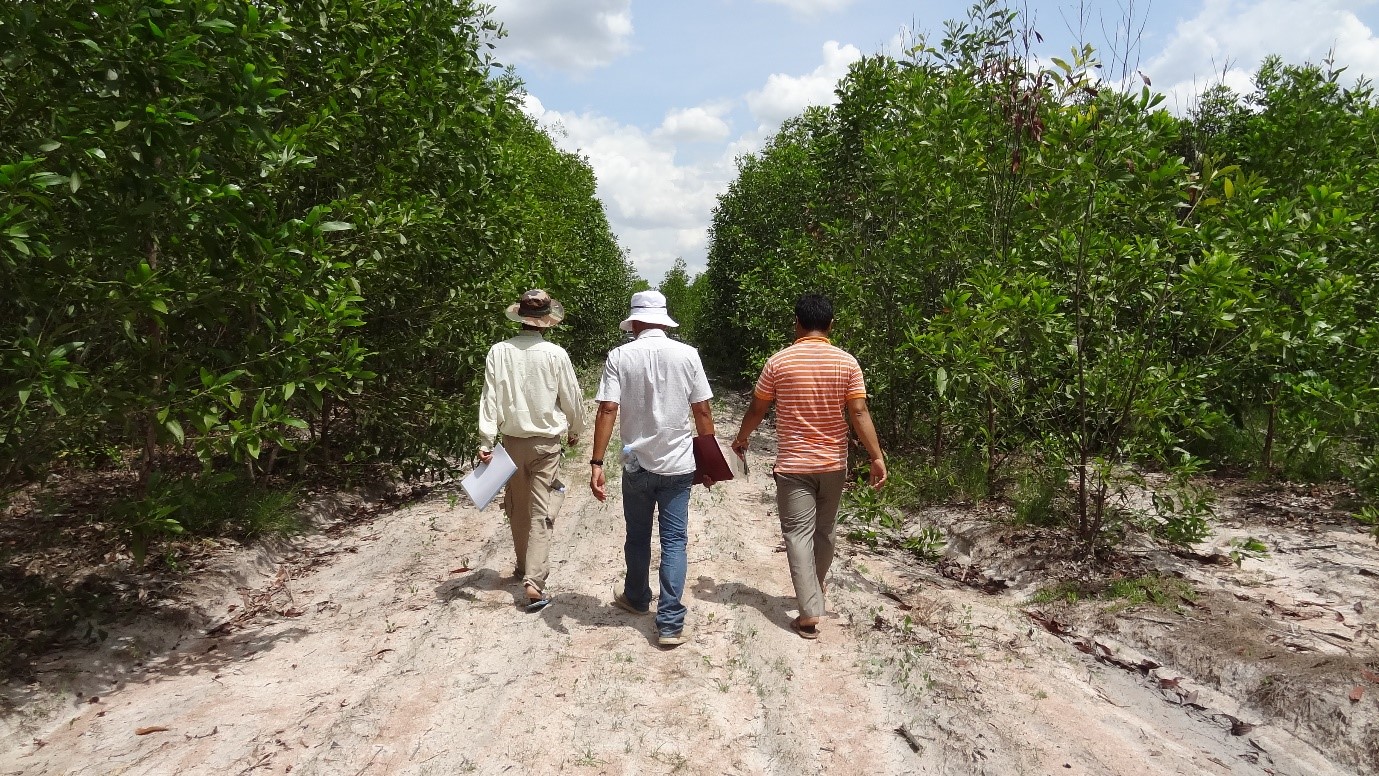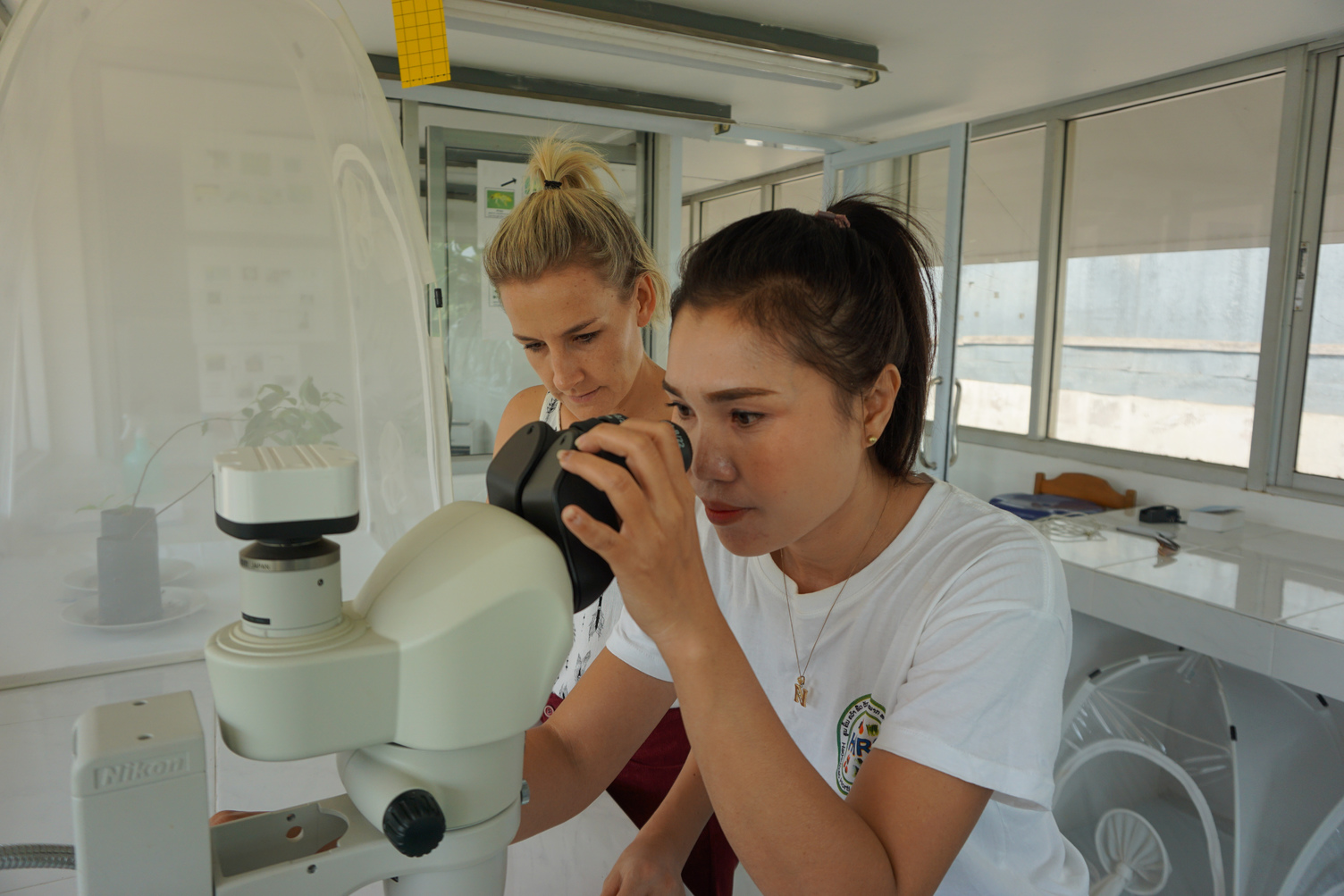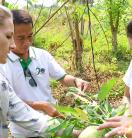Biosecurity network to protect forests in South-East Asia

A new biosecurity network will bring together research institutions from across South-East Asia to protect forests from invasive pests and diseases.
Funded by ACIAR and led by the University of the Sunshine Coast, the new research initiative will see scientists across Cambodia, Indonesia, Laos, Malaysia, Thailand and Vietnam create a coordinated network to share biosecurity knowledge, technologies and management strategies.
Both small and large forest industries contribute to income and employment in rural, regional, and national economies across South-East Asia, as well as environmental health.
Increased trade, travel and a changing climate are increasing pest threats to South-East Asian forests. In recent years, the region has lost more than 600,000 hectares of acacia plantations to disease.
However, a coordinated response can increase biosecurity capacity and protect the future of the region’s forests.
The proximity of Cambodia, Indonesia, Laos, Malaysia, Thailand and Vietnam means that a biosecurity failure in one can create flow-on problems for neighbouring countries. Working together is the fastest and most effective way to manage threats.
The new network will create, share and implement biosecurity practices and frameworks to reduce risk and increase resilience.
’By working together, we can build a faster, more effective biosecurity response to pest incursions and pest and disease management,’ said Dr Nora Devoe, ACIAR Research Program Manager for Forestry.
The regional forest biosecurity network will better integrate the forestry sector into existing biosecurity arrangements. The project will also increase capabilities for surveillance and pest risk analysis and use data from these activities to develop effective forest biosecurity policy for the region.
’The project is connecting nations from across the South-East Asian region—and different sectors from within them—to create a holistic and sustainable approach to addressing forest biosecurity,’ said Dr Madaline Healey, Research Fellow at University of the Sunshine Coast and Co-Project Lead.
While the project focuses on forest plantations of Australian species such as acacias and eucalypts, the cross-country network will build connections that can be leveraged for combatting a wide range of forestry and agricultural pests.
Dr Chanhsamone Phongoudome, Project Coordinator for Laos, explained that coordinated action, including ‘regular workshops, information sharing, site visits, stakeholder consultations and a working group’ will create better biosecurity practices and frameworks for all participating nations.
The project will benefit from a sister project running in the same region, focused on developing solutions to pest and disease issues in forestry. Both projects were conceptualised through discussions with partners from earlier ACIAR projects in the region, which spotlighted the need for a multinational, collaborative approach.
Dr Simon Lawson, Associate Professor for Forest Health at the University of the Sunshine Coast and Co-Project Lead said the project has been co-designed by our partners, based on their needs.
‘Partner countries were calling out for collaboration, to combat knowledge gaps. Each country has different strengths—working together means sharing knowledge and strengthening capabilities.’
The aim is to create a self-sustaining network, that will continue to protect forests and livelihoods long after the project is completed.
The development of the network follows a successful scoping study funded by ACIAR in 2020.
Learn more via the ACIAR website.




